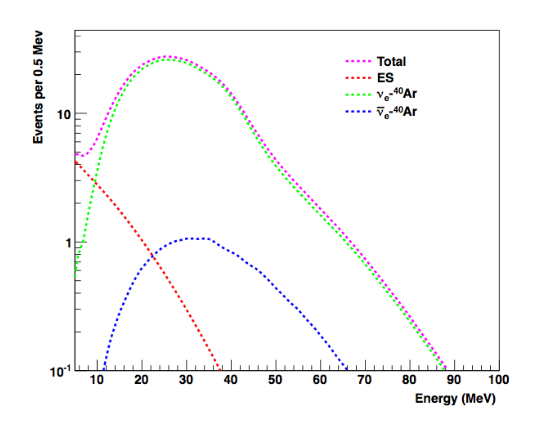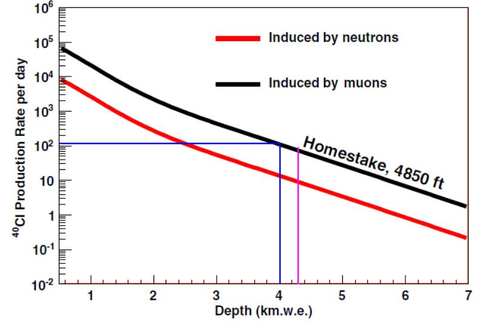Data Rates
Revision as of 20:26, 10 March 2015 by MaximPotekhin (talk | contribs) (→Muon and Neutron Backgrounds ({{Cl40}}))
Contents
Disclaimer
This page is in initial stages of construction.
Overview
According to the physics goals of the experiment, we need to consider the following main sources of signal:
- The "beam neutrino" signal
- The Supernova Burst (SNB) signal
- Proton Decay
- Solar neutrinos
All these signals have distinct energy scales, topologies and other characteristics. In terms of buffering and processing data in real or near time, they pose different requirements.
Beam Neutrinos
Because of the energy scale (~GeV range) neutrino interactions will be characterized by TPC signals well above radiological background. Zero-suppression will lead to significant reduction of data volume and rates (the detector will appear "empty" for the most part).
SNB
Reactions
νe+40Ar ⇒ e-+40K*
ν e+40Ar ⇒ e++40Cl*
νx+40Ar ⇒ νx+40Ar*
νe,x+e- ⇒ νe,x+e-
References
- DocDB 6977 - Software for low-energy signals
- DocDB 8481 - Summary of SNB Working Group Progress (February 2014)
Some reference curves from DocDB 6977:
In a nutshell:
- approximately 100 events per kiloton, spread over ~30 seconds, ~½ in first second
- all flavors, few tens of MeV
Solar
Muon and Neutron Backgrounds (40Cl)
Background Sources
References
- DocDB 4482 - Craig Thorn's summary of Ar properties
- Measurement of the specific activity of Ar-39 in natural argon
Important radiologicals
- 39Ar 1.01 Bq/kg β- End-point: 0.565MeV
- 85Kr 0.1-0.3 Bq/kg β- End-point: 0.687MeV

